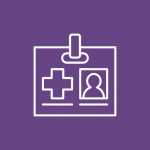What is Health & Practice Conditions Monitoring?
CPSA’s Health & Practice Conditions Monitoring (HPCM) program involves two important elements:
Health monitoring
If a regulated member has a health condition, an independent medical examination (IME) may be necessary to objectively determine diagnosis, treatment and whether the condition adversely impacts their ability to practise. Arrangements for IMEs, as well as any recommended health monitoring, are coordinated through HPCM.
Practice conditions monitoring
Under the Health Professions Act (HPA), CPSA can place conditions on a physician’s practice permit as a protective measure, to ensure patients are receiving safe medical care. Practice conditions monitoring is managed through HPCM.
HPCM Resources
To see more resources about HPCM, click on All Resources and filter by "Health and Practice Conditions Monitoring"
All ResourcesDuty to Report Self
CPSA Standard of Practice Click to view filesDuty to Report a Colleague
CPSA Standard of Practice Click to view filesDuty to Report a Colleague/Self
CPSA Advice to the Profession Click to view filesPhysician and Family Support Program (PFSP)
Alberta Medical Association (AMA) Click to view filesCanadian Medical Protective Association (CMPA)
Canadian Medical Protective Association (CMPA) Click to view filesHPCM FAQs
To see more FAQs about HPCM, click on All FAQs and filter by "Health and Practice Conditions Monitoring"
All FAQsWhat supports are available for physicians managing a health condition?
Is participation in Health & Practice Conditions Monitoring voluntary?
It is CPSA’s responsibility to ensure patients receive safe care. Under the Continuing Competence standard of practice, a regulated member must participate in a competence assessment when directed to do so (which in this case refers to participation in health and/or biological monitoring). Failure or refusal to comply with Continuing Competence program requirements is considered unprofessional conduct and may result in a referral to Professional Conduct under the Health Professions Act (HPA).
If my health condition requires assessment and monitoring, how much will it cost? Who is responsible for the costs?
Any costs associated with independent medical examinations, health and/or biological monitoring are set by the third-party service providers, CPSA is not involved in the determination of fees. The Alberta Medical Association has a guideline for uninsured services fees.
As per the Continuing Competence standard of practice (clause 16), these costs are the responsibility of the regulated member.
Why did CPSA change its Physician Health Monitoring Program (PHMP)?
Historically, CPSA operated PHMP primarily in-house. Starting in late 2023, CPSA began transitioning health assessments, fitness-to-practise assessments and biological monitoring functions to external service providers. The program is now called Health & Practice Conditions Monitoring (HPCM).
In addition to ensuring compliance with updates to legislation, these changes align with available and prevailing approaches to physician health programs in North America, and best practices in safety-sensitive industries.
Now diagnosis, treatment and whether a regulated member’s health condition adversely impacts their ability to practise will be objectively determined by independent, experienced and trusted service providers.
Moving these functions to providers independent of CPSA supports regulated members in feeling more comfortable self-reporting, and more inclined to seek support when they need it.
Privacy has always been an important part of our work, and this new process will further safeguard the confidentiality of a regulated member’s personal and health information.
Find out more about HPCM.
Questions?
Confidential inquiries: 780-969-5021
Confidential fax: 780-441-1616
Confidential email: PhysicianHealth@cpsa.ab.ca
Toll-free: 1-800-320-8624 (in Canada)

























